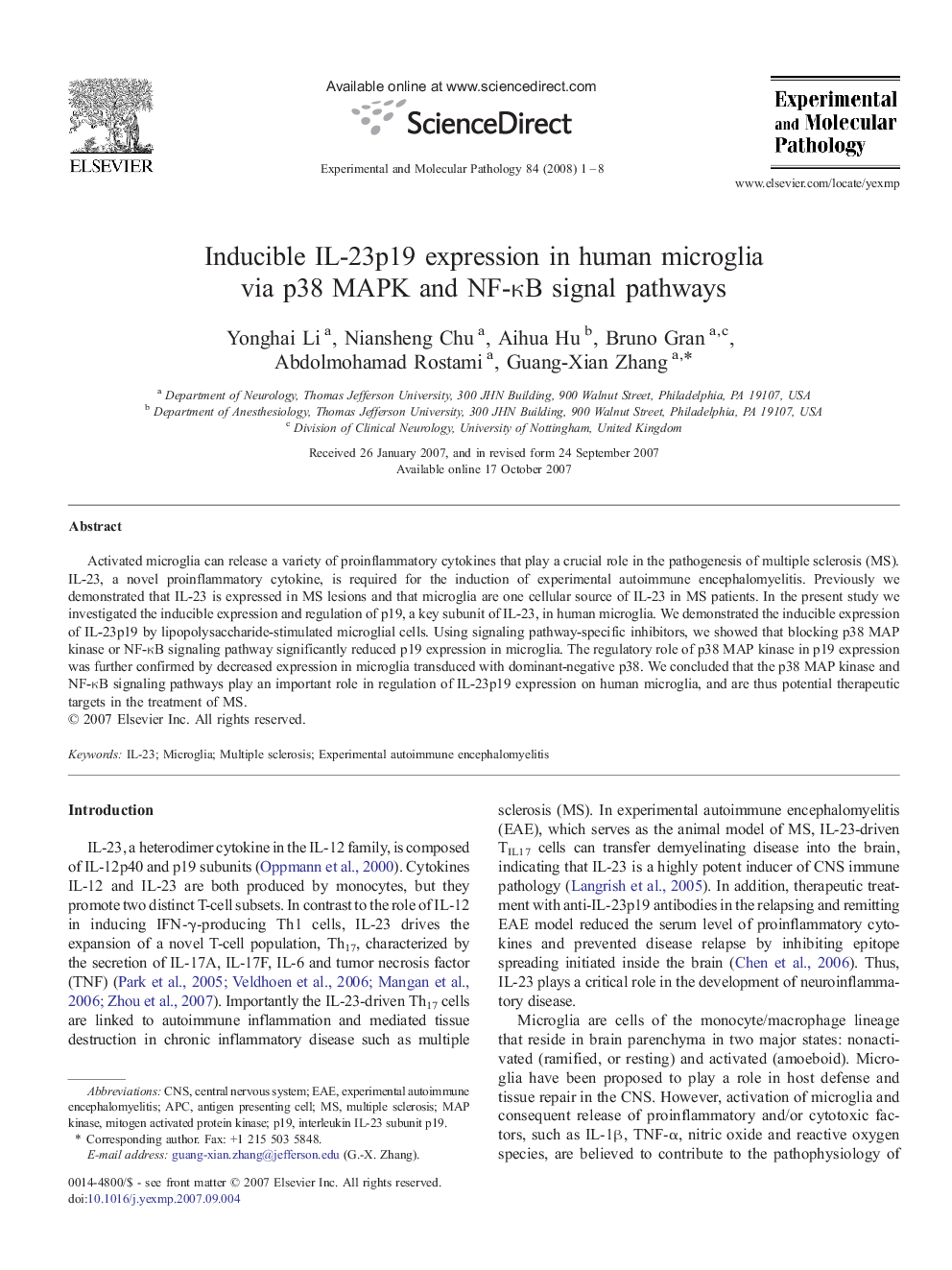| Article ID | Journal | Published Year | Pages | File Type |
|---|---|---|---|---|
| 2775715 | Experimental and Molecular Pathology | 2008 | 8 Pages |
Activated microglia can release a variety of proinflammatory cytokines that play a crucial role in the pathogenesis of multiple sclerosis (MS). IL-23, a novel proinflammatory cytokine, is required for the induction of experimental autoimmune encephalomyelitis. Previously we demonstrated that IL-23 is expressed in MS lesions and that microglia are one cellular source of IL-23 in MS patients. In the present study we investigated the inducible expression and regulation of p19, a key subunit of IL-23, in human microglia. We demonstrated the inducible expression of IL-23p19 by lipopolysaccharide-stimulated microglial cells. Using signaling pathway-specific inhibitors, we showed that blocking p38 MAP kinase or NF-κB signaling pathway significantly reduced p19 expression in microglia. The regulatory role of p38 MAP kinase in p19 expression was further confirmed by decreased expression in microglia transduced with dominant-negative p38. We concluded that the p38 MAP kinase and NF-κB signaling pathways play an important role in regulation of IL-23p19 expression on human microglia, and are thus potential therapeutic targets in the treatment of MS.
